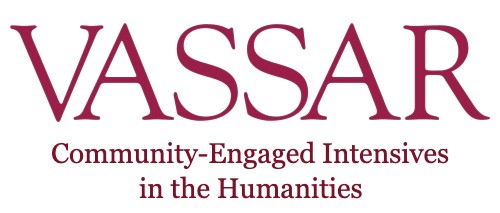EEA Workshops and Experiential Education Academy Certificate
Presented by: The National Society for Experiential Education, Mount Royal, NJ
The Value of EEA Workshops and National Certification:
- Recognition: NSEE is a nationally recognized professional association with EEA workshops filling an immediate and growing need to develop the knowledge, skills, and competence that will strengthen experiential education within your institutions
- Online: Our EEA workshops went fully online. Complete your workshops in 5 weeks and obtain a certification in a record time.
- Affordable: We offer a unique program at a competitive price: complete 6 workshops for the price of 5. The more you learn, the less you pay!
- Experienced: Our exceptional EEA FACULTY has extensive experience in teaching a foundation in theory and practice of experiential education and has proven expertise in design, implementation, assessment, and legal awareness for institutional experiential programs.
NSEE will offer all five EEA Foundation courses along with one elective workshop virtually this year starting on January 29th and ending on March 5th. We will coordinate 1 LIVE workshop per week for six weeks and all workshops will run from 1:00pm to 4:30pm EST. Each workshop will cost $195 for a member or $215 for a non-member.
The schedule for the EEA Virtual Workshops:
January 29, 2021, 1pm-4:30pm EST – Fundamentals of Experiential Education – Participants in this workshop will explore the theoretical and philosophical roots of experiential education and the principles of good practice fundamental to all types of experiential learning. Participants will have an opportunity to actively explore the implications and applications of this information, and to identify the resources available for continued professional development and specific use in their programs.
February 5, 2021, 1pm-4:30pm EST – Principles of Ethical & Best Practices – Workshop participants will examine two NSEE foundation documents, the Guiding Principles of Ethical Practice and Principles of Best Practice in Experiential Education. The goal is to develop a deep understanding of these principles through both a theoretical examination of the contents and a hands-on experiential component where participants will be given an opportunity to generate ideas specific to their own programs.
February 12, 2021, 1pm-4:30pm EST – Reflection – While experiences are the first E in experiential education, it is through reflection that the learning takes its root and makes lasting changes. According to Kolb, learning is a process where knowledge is created through the transformation of experience. Reflection is integral to that transformation. This workshop will explore methods of guiding students to be more reflective in their experiences and following their experiences: the use of journals in reflection and models for conducting regular seminars promoting reflection and reflective conversation.
February 19, 2021, 1pm-4:30pm EST – Assessment – This workshop will introduce beginners to the fundamentals of assessment in experiential learning settings and provide intermediate level assessment training for practitioners beyond the beginner’s level, who seek to improve their outcomes assessment skills. The primary goal is to assist participants in the development of an outcomes assessment plan to use at their own institution. Employing a hands-on, active learning approach, this workshop will include a mix of presentation, applied tasks, small group work, and interactive discussion.
February 26, 2021, 1pm-4:30pm EST – Legal Issues – This workshop examines the broad range of legal issues that arise in administering experiential learning programs, with particular emphasis on the reciprocal rights and responsibilities of the school, work-site, and student. Key issues such as student, school and work-site liability, risk management (including waivers, assumption of risk and insurance), protecting and accommodating student rights (including discrimination and ADA compliance), tax and compensation consideration, contractual obligations, and issues arising out of the use of public funds,will be examined. Time will be allotted for participants to engage in a discussion of these issues, as well as explore the application of legal issues to their specific programs in a “legal clinic” format.
March 5, 2021, 1pm-4:30pm EST – Strategic Planning for Experiential Program Design – This interactive workshop will focus on models of effective experiential education programs, program implementations and program management. Participants will consider what “best practice” means in their environment and what should go into the design of an ideal program.
